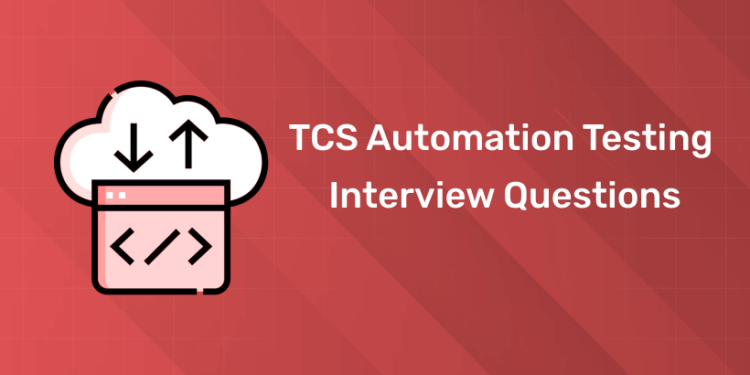Table of Contents
Automation testing is a key part of software development, so applications run smoothly and efficiently. Companies like TCS value automation testers highly. If you are preparing for TCS automation testing interview, you should know the basics and frequently asked questions. This post will give you an overview of TCS, reasons to join TCS as automation tester, preparation tips and TCS automation testing interview questions.
TCS Overview
Tata Consultancy Services (TCS) is one of the largest IT services and consulting company in the world. Headquartered in Mumbai, India, TCS has operations in over 46 countries and has a workforce of over 450,000 people. The company offers a wide range of services including IT consulting, software development, business process outsourcing and managed services. TCS is known for its innovative solutions, latest technology and quality.
Why Join TCS as Automation Tester?
1: What is software testing?
Reputation and Stability
TCS is a well known and respected brand in IT industry. Working in TCS means job stability and working with global leader in technology and innovation.
Career Growth
TCS provides plenty of opportunities for career growth and professional development. The company offers various training programs, certifications and mentorship to help employees to improve their skills and advance their career.
Diverse Projects
At TCS you will have the chance to work on diverse projects across different industries. This will give you valuable experience and expand your knowledge base.
Work-Life Balance
TCS is known for its employee friendly policies and work-life balance initiatives. The company offers flexible working hours, remote work options and various wellness programs to ensure employees have a healthy work-life balance.
Learn Software Testing from QA Experts! Get Free Demo Classes Here!
Master Testing Skills with Industry Experts
Become a Test Engineer: Learn Core Skills from Industry-Leading Mentors and Land High-Paying Testing Jobs!
Explore ProgramPreparation Tips for TCS Automation Testing Interviews
Basics
Make sure you have good understanding of automation testing concepts, tools and techniques. Familiarize yourself with automation testing tools like Selenium, QTP and TestComplete.
Practice Coding
Automation testing involves writing scripts and code. Practice coding in languages used in automation testing like Java, Python or C#. Focus on writing clean, efficient and well documented code.
Study Interview Questions
Study automation testing interview questions and practice your answers. This will make you feel more confident during the interview.
Mock Interviews
Do mock interviews to simulate the actual interview. This will help you to improve your communication skills and get feedback on your performance.
Stay Current
Stay updated with latest trends and technologies in automation testing. Read industry blogs, attend webinars and participate in online forums.
Enroll in Relevant Courses
Enhance your skills by taking relevant courses. Entri offers a comprehensive Software Testing Course that covers essential topics and prepares you for various testing roles. Enrolling in this course will help you master automation testing techniques and excel in your interview.
Core Concepts in Automation Testing
Test Automation Framework
A test automation framework is a set of rules, tools and practices to create and manage automated test scripts. Data-Driven, Keyword-Driven and Hybrid are common frameworks.
Test Scripts
Test scripts are automated sequence of instructions that perform specific actions on the application under test. These are written in programming languages and testing tools.
Test Run
Test run is the process of running automated test scripts on the application to validate the functionality and performance. Results are recorded and analyzed to identify defects and issues.
CI and CT
CI is a development practice where code changes are checked in to a shared repository. CT is running automated tests as part of the CI process to make sure code changes do not introduce new defects.
Test Reporting
Test reporting is generating reports that summarizes the results of automated test runs. These reports help stakeholders to know the status and quality of the application.
TCS Automation Testing Interview Questions
1. What is Automation Testing?
Answer: Automation testing uses software tools to run pre-scripted tests on a software application before it goes to production. The main goal is to automate repetitive and time consuming testing tasks, to increase efficiency and accuracy.
2. What are the advantages of Automation Testing?
Answer:
- Efficiency: Automation testing reduces the testing time.
- Accuracy: Automated tests are less human error prone.
- Reusability: Test scripts can be used across different projects.
- Cost Effective: Reduces the overall cost of testing in long run.
3. What is the difference between Automation Testing and Manual Testing.
Answer:
- Automation Testing: Uses automated tools to run tests. It is faster and more accurate but requires initial investment in tools and script development.
- Manual Testing: Involves human testers to execute test cases. It is slower and human error prone but is useful for exploratory and usability testing.
4. What are the types of Automation Testing frameworks?
Answer:
- Linear Scripting: Simple record and playback model.
- Data-Driven Framework: Uses external data sources to drive test cases.
- Keyword-Driven Framework: Uses keywords to represent actions.
- Hybrid Framework: Combines two or more frameworks for better efficiency.
5. Which tools have you used for Automation Testing?
Answer: Selenium, QTP/UFT, TestComplete, Appium, JUnit are common automation testing tools. The choice of tool depends on the project requirements.
6. How do you decide which test cases to automate?
Answer:
- Repetitive Tests: Tests that need to be run frequently.
- Critical Tests: Tests that cover critical functionality.
- High-Risk Tests: Tests that have high impact on the application.
- Stable Tests: Tests that are not likely to change often.
7. What is Source List in SAP MM?
Answer: A Source List in SAP MM is a list of approved vendors for a material over a period of time. It ensures the right supplier is chosen for procurement based on criteria like delivery time, quality and price.
8. What are the common issues in Automation Testing?
Answer:
- Initial Setup Cost: Cost of automation tools and script development.
- Maintenance: Scripts need to be updated regularly.
- Complexity: Complex test cases are difficult to automate.
- Skill: Skilled personnel required for scripting and maintenance.
9. How do you handle exceptions in your scripts?
Answer:
- Try-Catch Blocks: Use programming constructs to catch and handle exceptions.
- Assertion Methods: Validate expected results and handle failures.
- Logging: Log to troubleshoot issues.
10. What is Selenium and how is it used in Automation Testing?
Answer: Selenium is an open-source automation tool for web applications. It supports multiple languages (Java, Python, C#) and browsers. Selenium WebDriver is used for browser based regression testing and suites.
11. What is Test Automation Framework?
Answer: A test automation framework is a set of rules, tools and practices to create and manage test scripts efficiently. It increases reusability, maintainability and scalability of automated tests.
12. How do you ensure automated tests are reliable?
Answer:
- Stable Environment: Ensure a stable environment.
- Regular Maintenance: Update and maintain scripts regularly.
- Full Coverage: Cover all scenarios.
- Error Handling: Robust error handling in scripts.
13. What is Continuous Integration (CI) and Continuous Testing?
Answer:
- Continuous Integration (CI): Code changes are committed to a shared repository frequently.
- Continuous Testing: Automated tests are run as part of CI to ensure code changes don’t break.
14. What is Test Reporting and why is it important?
Answer: Test reporting is generating reports that summarizes the results of automated test runs. These reports help stakeholders to understand the status, quality and stability of the application under test.
15. How do you handle dynamic elements in your scripts?
Answer:
- XPath: Use dynamic XPath.
- CSS Selectors: Use CSS to locate elements.
- Waits: Implement explicit and implicit waits to handle asynchronous.
16. What is Test Suite in Automation Testing?
Answer: A test suite is a collection of test cases to be executed together. It helps in organizing and managing test cases based on functionality, module or priority.
17. How do you verify the results of your automated tests?
Answer:
- Assertions: Use assertions to validate expected results.
- Verification Points: Use verification points in scripts.
- Manual Review: Manually review logs and reports to ensure accuracy.
18. What is Data-Driven Testing?
Answer: Data-driven testing is using external data sources (like Excel, CSV, databases) to drive test cases. It helps in testing the same functionality with multiple data sets.
19. How do you maintain your test scripts?
Answer:
- Version Control: Use Git.
- Modularization: Break down test scripts into modules.
- Regular Updates: Update scripts regularly.
20. What is the role of an Automation Test Lead?
Answer: An automation test lead is the one who oversees the automation testing process. Responsibilities include planning, designing, implementing and managing automated tests, mentoring junior testers and ensuring the overall quality of the automation testing.
Become a Certified Software Tester! Join Our Free Trial Class!
Master Testing Skills with Industry Experts
Become a Test Engineer: Learn Core Skills from Industry-Leading Mentors and Land High-Paying Testing Jobs!
Explore ProgramConclusion
To succeed in a TCS automation testing interview, ensure a solid understanding of testing concepts, tools like Selenium or UFT, and frameworks such as TestNG or JUnit. Brush up on programming skills, debugging, and staying updated on the latest trends like AI-driven testing and continuous integration. Practice common interview questions to build confidence. Boost your preparation with our Software Testing Course, covering essential tools, frameworks, and real-world projects. Gain the skills and confidence needed to crack interviews and excel in your career!
Are you aspiring for a booming career in IT? If YES, then dive in |
|||
Full Stack Developer Course |
Python Programming Course |
Data Science and Machine Learning Course |
Software Testing Course |
Frequently Asked Questions
What are the core concepts I need to know for a TCS automation testing interview?
You need to understand automation frameworks, test scripts, test execution, continuous integration, continuous testing, and test reporting.
What tools are commonly used in automation testing at TCS?
Common tools include Selenium, QTP/UFT, TestComplete, Appium, and JUnit.
What types of test automation frameworks should I be familiar with?
Familiarize yourself with linear scripting, data-driven frameworks, keyword-driven frameworks, and hybrid frameworks.
Why is TCS a good choice for automation testers?
TCS offers career growth, diverse projects, work-life balance, and job stability within a globally recognized company.
What are the differences between automation testing and manual testing?
Automation testing uses tools to execute tests and is faster and more accurate, while manual testing involves human testers and is useful for exploratory and usability testing.













